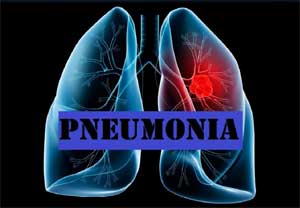- Home
- Editorial
- News
- Practice Guidelines
- Anesthesiology Guidelines
- Cancer Guidelines
- Cardiac Sciences Guidelines
- Critical Care Guidelines
- Dentistry Guidelines
- Dermatology Guidelines
- Diabetes and Endo Guidelines
- Diagnostics Guidelines
- ENT Guidelines
- Featured Practice Guidelines
- Gastroenterology Guidelines
- Geriatrics Guidelines
- Medicine Guidelines
- Nephrology Guidelines
- Neurosciences Guidelines
- Obs and Gynae Guidelines
- Ophthalmology Guidelines
- Orthopaedics Guidelines
- Paediatrics Guidelines
- Psychiatry Guidelines
- Pulmonology Guidelines
- Radiology Guidelines
- Surgery Guidelines
- Urology Guidelines
Opioid use increases pneumonia risk in Alzheimer's disease patients

Finland: The use of opioid analgesics among patients with Alzheimer's disease (AD) is associated with a 30% increase in the risk of pneumonia, suggests a recent study published in the Journal of Alzheimer's Disease. The risk was highest with the use of strong opioids, such as oxycodone or fentanyl and was more pronounced in the first two months of use.
"The study is first of its kind to investigate the association between opioids and pneumonia in this population," write the authors.
In patients with Alzheimer's disease pneumonia often leads to hospitalization and excess deaths. Still, no study until now has evaluated the impact of opioids as a risk factor for pneumonia in AD patients. Aleksi Hamina, Kuopio Research Centre of Geriatric Care, University of Eastern Finland, Kuopio, Finland, and colleagues conducted this study to investigate the association between opioid use and hospital-treated pneumonia among community dwellers with AD.
The study is part of the MEDALZ cohort, which included 5,623 persons with Alzheimer's disease diagnosed in Finland during 2010-2011. Each person initiating opioid use was matched with a comparison person with Alzheimer's disease who did not initiate opioid use but had the same age, gender and year of Alzheimer's diagnosis. Data for the study were derived from Finnish nationwide registers.
Persons with active cancer were excluded from the study, and other diseases and drug use were accounted for in the analyses. Opioids impair the cough reflex and respiratory functions and cause sedation, possibly underlying the increased risk for pneumonia.
Key findings:
- Incident opioid use was associated with an increased risk of hospital-treated pneumonia compared to nonuse.
- The highest risk was observed during the first two months of use.
- Compared to weak opioids, buprenorphine was not associated with a higher risk of pneumonia, but strong opioids were.
- The risk was higher for those using ≥50 morphine milligram equivalents (MME)/day, compared to using <50 MME/day.
"Opioid use was associated with a risk of hospital-treated pneumonia in a dose-dependent manner among persons with AD. Risk-minimization strategies should be considered if opioid therapy is needed," concluded the authors.

Disclaimer: This site is primarily intended for healthcare professionals. Any content/information on this website does not replace the advice of medical and/or health professionals and should not be construed as medical/diagnostic advice/endorsement or prescription. Use of this site is subject to our terms of use, privacy policy, advertisement policy. © 2020 Minerva Medical Treatment Pvt Ltd